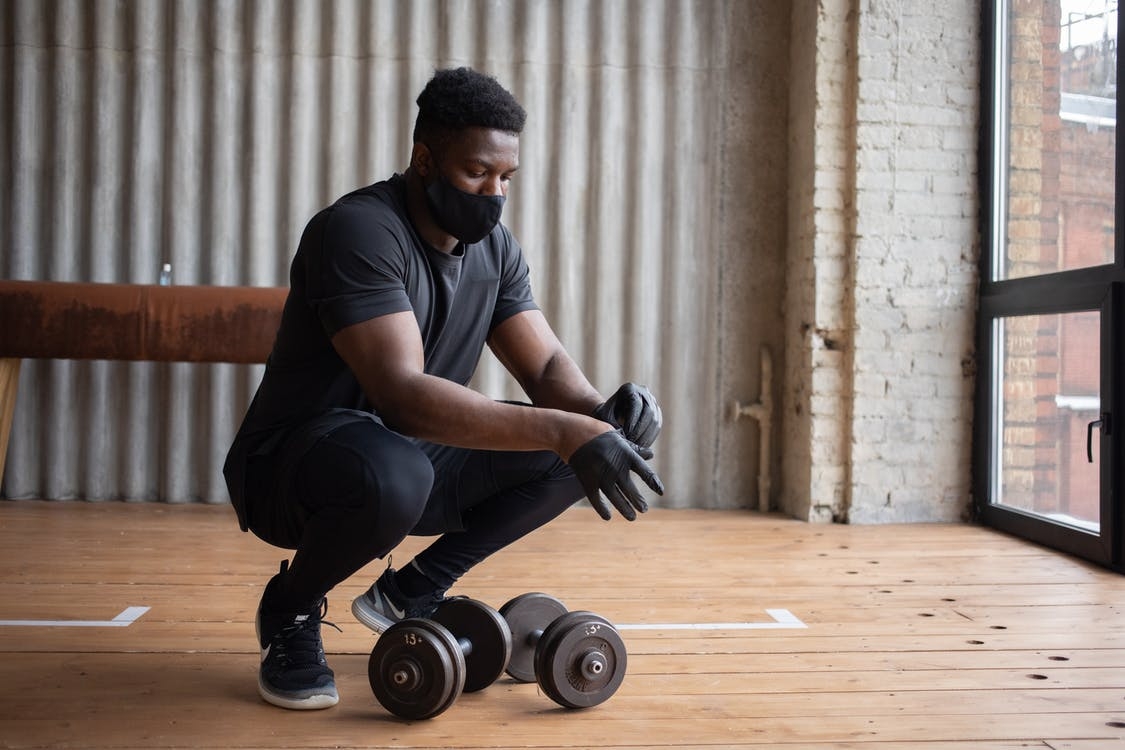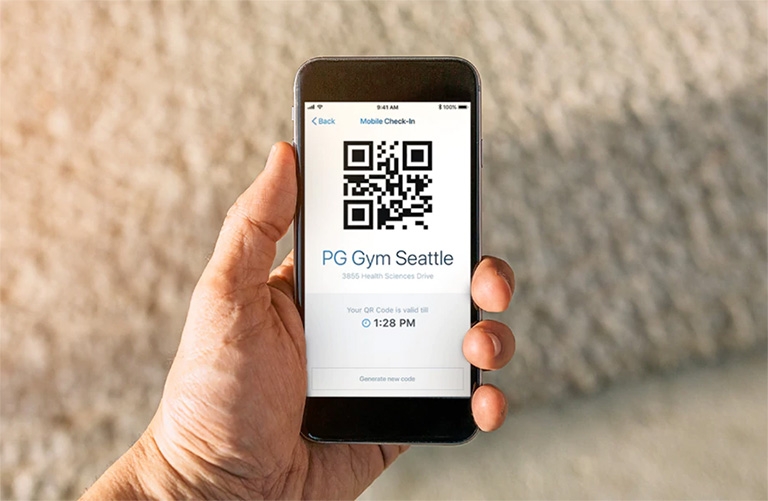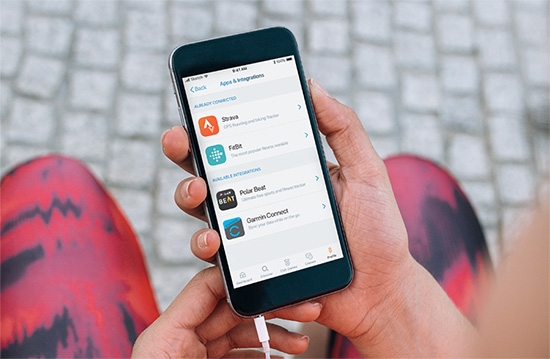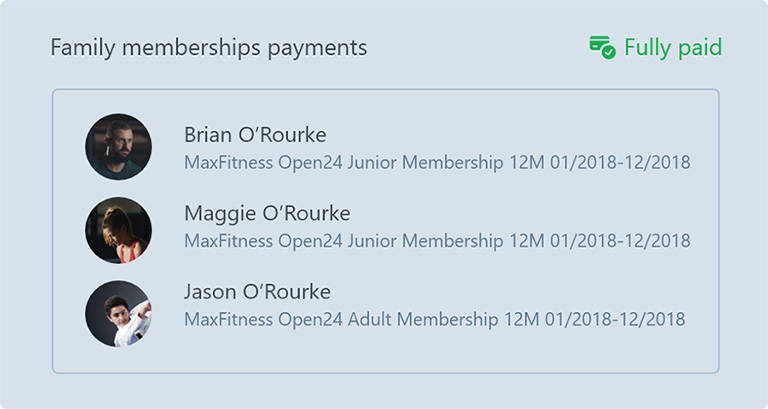Since the beginning of the pandemic, the fitness industry has had more than one obstacle to overcome. Every facet of life has had to adapt to the new norm, as many fitness professionals have had to keep their clients virtually engaged.
Fitness consumers eventually sought a combination of online classes, on-demand content, and outdoor exercise to satisfy their needs. What transpired was new streams of competition for fitness space operators and an added incentive to develop their digital offerings.
As 2022 is just around the corner, we’ve collated what both fitness businesses and fitness customers can expect to see in the new year.
The shift towards digital fitness
Over the past pandemic affected year, cycling fitness app Peloton downloads increased fivefold. Health and fitness app downloads have grown by nearly 50% since the beginning of the pandemic worldwide.
PerfectGym Mobile App is no different, it has also seen a surge in interest, reaching 500k users this year.
Research compiled by Club Industry and EuropeActive indicated almost seven million online fitness community posts in April – more than three times the amount registered in February.
This increase in online engagement has taught us that the industry must pivot towards technology-centred solutions. In other words, the future of the fitness industry’s success will depend on leveraging technology to provide immersive and cutting-edge experiences.
The past two years have demonstrated this with the rise of app-based workouts, streaming, and on-demand virtual fitness. Digital fitness services such as these already existed before COVID-19, but the speed at which fitness businesses embrace the digital shift will ultimately determine their success.
Source
For a fitness professional, this might translate to building a hybrid fitness business model to generate additional revenue. Moreover, this digitisation should not be disregarded as a temporary measure but rather a modern and robust business model that will shape this industry for years to come.
Cultivating a community
Fitness spaces are by nature innately social venues. Some people like to see gyms as a space for introspective self-reflection, but there’s a distinctive facet of belonging to a bigger picture within the spectrum of a fitness club.
Even with the physical element of members missing in their space, fitness operators are still challenged to emulate the social area of fitness.
However, to do so effectively, businesses must invest in community building as if it were a tangible asset. A fitness space’s unique community vibe and spirit is undoubtedly a huge selling point for potential new members.
As a result, fitness businesses must foster an online and offline community that encourages their members to connect and engage. Fitness professionals should be motivated to create digital content in blogs and videos that help support their business.
With a few trainers or coaches committing to this, you can still facilitate meaningful experiences between members and staff amidst the pandemic.
The last two years have taught us that members with strong social connections to their clubs are at far less risk of leaving. If fitness operators can cultivate a community beyond their physical space, they’ll create something that goes beyond business.
The future of fitness industry is premium service
Modern fitness spaces often get caught into the trap of offering five-star amenities without the five-star service. Providing free embroidered towels and fancy locker room facilities is not the tip of the iceberg.
According to research from Zendesk, 75% of people would return to a company with excellent service, and 56% would recommend it to family and friends. An initial tour of the space and the facilities goes a long way for prospective members to make them feel comfortable.
Fitness consumers are receptive, and most want the service of a facility and staff who will know how to solve and cater to their needs.
In 2022, one of the most significant needs above all is safety. Gym members will naturally be more inclined to stay and refer your gym if they see your staff caring as much as they do about hygiene.
Safety should be the highest priority going into the new year.
Source
Fitness spaces worldwide have all boosted their cleaning and sanitisation processes but next time, make it more obvious. The more signs erected explaining what your staff are doing, and more cleaners working during peak times will help put more members' minds at ease.
Adjusting to the new safety measures
Despite fitness spaces reopening over the past year, consumers are still reluctant to return. A large portion has referred to a lack of trust or inadequate communication between provider and consumer as their grounds for not continuing their membership.
Ease your members’ concerns by reacting to their demands regarding safety and establish a system that diplomatically allows them to have their voices heard. At the bare minimum, it should be vital to ensure that your space is adhering to strict hygiene protocols - it won’t go unnoticed by your members.
Clubs who implement technology to assist their cause will have an advantage over the competition.
PerfectGym’s Mobile Check-in through QR code scanning will be one solution to maintain standards. Reducing the number of touchpoints will slow down the spread of Covid in your facility, making your members feel comfortable upon their return.
The future of fitness is to leverage existing tech to limit contamination, and software like PerfectGym helps automate and digitise a wide range of processes.
PerfectGym can be used for remote capacity control and effective contact tracing. With over 160 unique reports, gym owners can run reports that help identify members who attended your facility at a specific time and who have been exposed to the virus, simplifying the process of contact tracing.
This is what the future of fitness industry relies on - technology to overcome issues related to safety.
Virtual workouts with a Hybrid Fitness Model
To continue the theme, the utilisation of tech in the fitness industry proved valuable over the past 18 months.
With the ability of fitness software to provide an in-built streaming service or integrate with wearable fitness technology, fitness consumers have a greater opportunity to exercise from home, be engaged, and stay fit.
A hybrid fitness model offers the best of both worlds in the fitness industry. Members get an in-class experience from the comfort of their homes but can still attend your space if they choose.
The model is not a new phenomenon, but the pandemic accelerated its popularity.
According to the Worldwide Survey of Fitness Trends, online training has been the number one fitness trend in 2021. It's no surprise that the number of available fitness apps increased by 5.66 per cent from 2019 to 2020.
As fitness consumers have more choices, the future of the fitness industry must evolve to provide solutions that cover all bases. Consumers may cherish flexibility more than ever, so a product that can be used from anywhere will naturally suit many people.
Wellness-tracking wearables
The prevalence of wearable tech and activity trackers will continue their popularity in 2022, but their design will evolve to cover more than just fitness. Smartwatches and other wearables have added features like body temperatures, stress levels, sleep, and heart rate.
The market has dictated that even the more passive fitness consumers are interested in wellness metrics beyond just steps.
One fine example is the wearable technology company Whoop. In 2021, they raised $200 million in funding for their product that tracks your sleep, health, strain and recovery to have a more thorough picture of your overall wellbeing.
Gym-goers are ever more demanding of an inclusive and engaging experience.
If fitness centres are able to offer wearable integrations with their own mobile app, it could be another unique selling point for them.
PerfectGyms’ open API is able to integrate with third-party wearables and technology giving you valuable insight into your member's workout routines and efforts put into their daily workouts.
The future of fitness technology is cultivating an open ecosystem.
Connect the PerfectGym Management System to your existing equipment and software modules for complete control.
The future of fitness trackers is holistic, tracking not only fitness levels but also all other factors that are important to our overall wellbeing.
The future of fitness is smart home gym
The popularity of smart home gym equipment was a true sign of the times. Although it was trending before the pandemic, brands like FightClub and Tonal continued to raise millions in funding despite being unaffordable for a large part of the market.
The global smart home gym equipment industry is anticipated to grow by 9.2%. Growth can be attributed to the increasing adoption of smart home gym equipment driven by multiple lockdowns amidst the pandemic.
Besides price, another barrier consumers’ experience is the size of the equipment.
Cutting-edge brands like the Temple Studio offer an all-in-one home gym the size of a mini-fridge, coming in at under $400. While Peloton may be a big name in this space, it will be interesting to see how broader consumer-friendly concepts fare.
Fitness expert Brady Dougherty told Today she believes society adopting home gym equipment is a method people practice modern self-care.
"I think purchasing fitness equipment is another way to invest in our health just like we would go to an annual physical or get a massage," she said.
Small group training (possibility for boutique studios)
Small group training was in the top 20 fitness trends from multiple countries in ACSM’s 2021 Fitness Trends From Around The Globe. The pandemic has changed how we approach group fitness; not everybody will feel comfortable going back to fitness classes operating near full capacity. Offering small group training will help facility owners to meet their customers halfway.
The most successful fitness clubs often have a “tribe” of members who see their club as a matter of pride; that feeling of community elevates the business.
Small group training sessions allow people to socialise while exercising, and entire brands have been built on this premise. Small classes such as trapeze, roller skating, and trampolining continue to grow in popularity.
Business owners will be forced to innovate to be ahead of their competition.
Fitness centres will need to offer a diverse selection of services to meet a wide range of clients’ needs. They will need a system like PerfectGym, that is able to customise memberships per their offering.
Moving forward, gyms that choose to offer classes and personal training sessions only will be at a considerable disadvantage.
Quick and effective workouts
Time-efficient workouts are nothing new. But the rising popularity of micro-HIIT workouts can be seen on apps such as the 7 Minute Workout Challenge and Fiit, which offers workouts as short as 10-minutes. They suit people who want to squeeze in a fast, practical workout throughout the day.
These mini workouts benefit both the time-sensitive people and those who don’t have the motivation for something more strenuous.
They can be spread out throughout the day to allow those to capitalise on their small windows of time. Whether it’s strength training with free weights or a high-intensity impact training session, workouts that can be sandwiched into the modern person’s busy schedule will prove increasingly more popular.
To sum it up
The future of fitness industry is looking forward to brighter skies after an uncertain period manifested a shift in the way people exercise. Consumer behaviour and technology will continue to drive the fitness industry.
As a change towards sustainable fitness rather than get-fit-quick alternatives continues to rise, there are various opportunities within the industry to meet consumer demand.
Whatever the future holds, one thing will remain certain: people want to stay healthy.
What fitness business operators do at the threshold of the pandemic will lay the foundation for the industry to recover and allow people to live healthier and happier lives.
The future of the fitness industry is digital transformation, and to keep up, gym owners around the world need trusted gym management software. If you're interested in finding out what PerfectGym can do for you, request a demo now.
Cover image source










